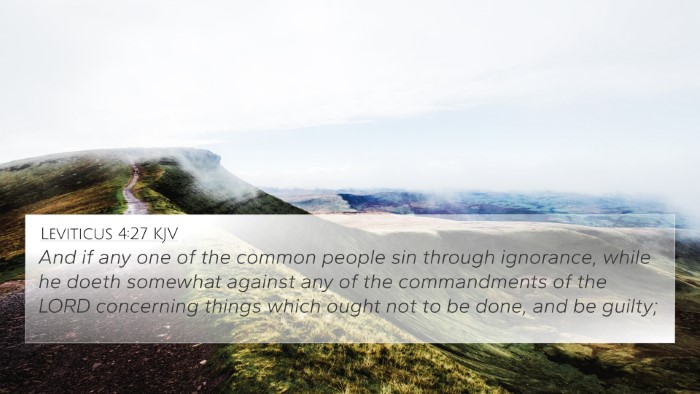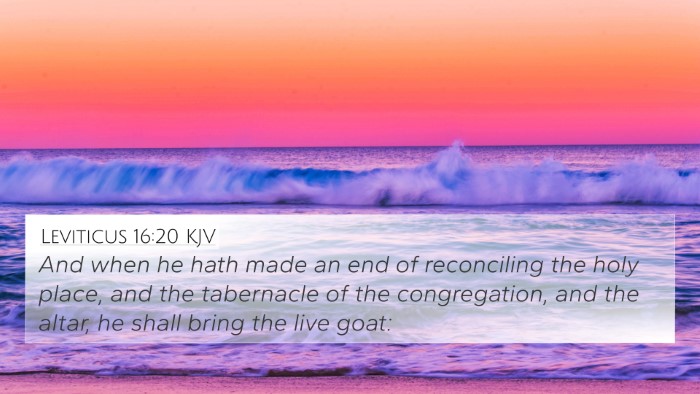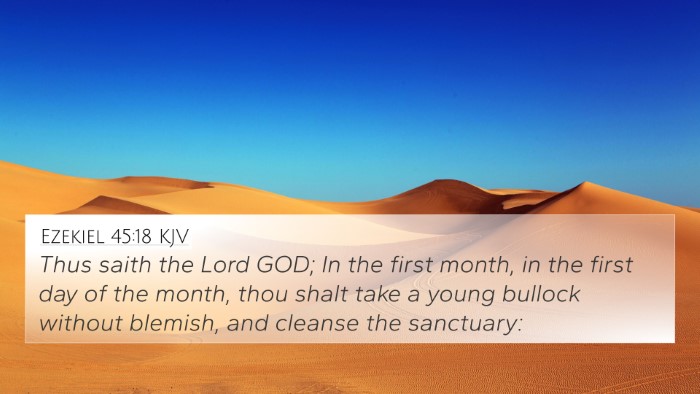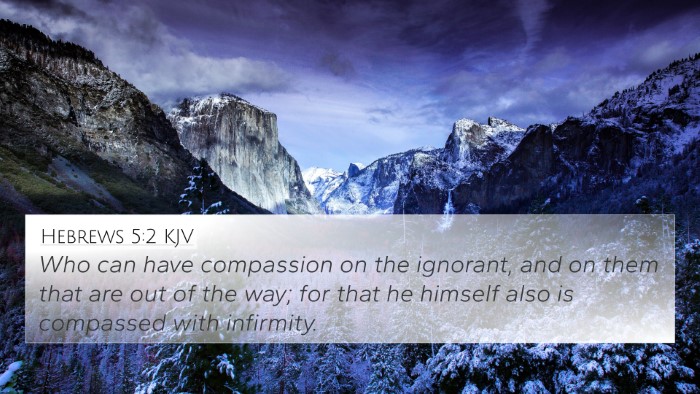Ezekiel 45:20 - Summary and Interpretation
Bible Verse: Ezekiel 45:20 states, "And so thou shalt do the seventh day of the month for every man that errors, and for him that is simple: so shall ye reconcile the house." This verse is a directive related to the atonement processes dictated in the priestly laws.
Meaning and Context
In this verse, God communicates through Ezekiel concerning procedures to maintain holiness and purity within the community. The context revolves around the temple and sacrificial system where atonement is vital. The instruction refers to performing rites that address the sins of the people, especially for those who may not fully understand their transgressions.
Commentary Insights
-
Matthew Henry's Commentary:
Henry emphasizes that this verse showcases God's mercy by allowing those who err and are simple to have a means of reconciliation. It highlights God’s desire to restore rather than to destroy, providing a structured approach for maintaining communal holiness.
-
Albert Barnes' Notes:
Barnes notes that the mention of the "seventh day" signifies the regular and systematic approach to atonement in a spiritual cycle. He highlights the importance of timing in the administration of these rituals to ensure that all transgressions are addressed.
-
Adam Clarke's Commentary:
Clarke expands on this by interpreting “every man that errors” as inclusive of varying degrees of sinfulness. He clarifies that the law provides avenues for repentance and corrective actions, adaptable to the awareness and understanding of each individual.
Cross-References for Ezekiel 45:20
- Leviticus 4:27-31: Addresses the sin offerings for individuals who unintentionally sin.
- Leviticus 16:30: Discusses the Day of Atonement, a pivotal day for communal cleansing of sins.
- Isaiah 53:6: Highlights the collective nature of sin and the need for reconciliation through a sacrificial system.
- Matthew 5:23-24: Jesus speaks about the necessity of reconciliation before offering gifts at the altar, echoing the spirit of Ezekiel’s message.
- James 5:16: Encourages confessing sins to one another to heal, connecting communal responsibility with personal sin.
- 1 John 1:9: Details the assurance of forgiveness upon confession, aligned with the themes of atonement in Ezekiel.
- Hebrews 9:26-28: Discusses sacrifices and their ultimate fulfillment in Christ, linking Old Testament practices with New Testament theology.
Thematic Connections
This verse not only informs about individual accountability but also highlights the dynamic relationship between the Old and New Testament understandings of sin and atonement. Such thematic connections include:
-
Mercy and Forgiveness: God’s consistent theme of mercy is evident throughout scripture—from the laws of Moses to the teachings of Christ.
-
Community Responsibility: The need for collective acknowledgment and purity resonates in Christian fellowship teachings.
-
Atonement Processes: The systematic processes established in the Law find their fulfillment in the sacrificial death of Jesus.
-
Understanding Sin: There is an ongoing dialogue on what constitutes sin, evolving from the strictures of the law to the relational aspects of faith in Christ.
Tools for Further Study
To dive deeper into the scripture and its interpretations, consider utilizing the following:
- Bible Concordance: A handy tool to locate verses across various themes and words.
- Bible Cross-Reference Guide: Helps in mapping out connections between scriptures.
- Cross-Reference Bible Study: A method to explore related verses holistically.
- Bible Reference Resources: Collection of commentaries and study tools available for in-depth study.
- Cross-Referencing Bible Study Methods: Strategies to enhance the depth of understanding through biblical texts.
Conclusion
Ezekiel 45:20 invites readers to contemplate the significance of atonement, community, and the mercy of God. Through cross-referencing this verse with others, believers gain a multilayered understanding of sin, responsibility, and forgiveness, enriching their faith journey and sparking a deeper dialogue between the sacred texts.









